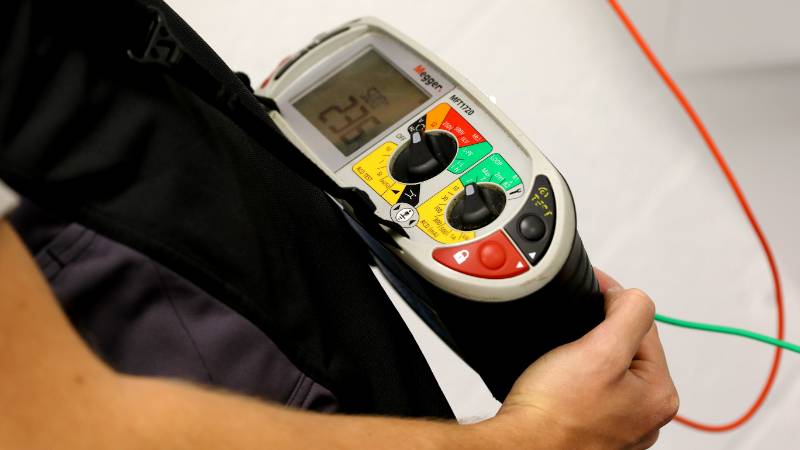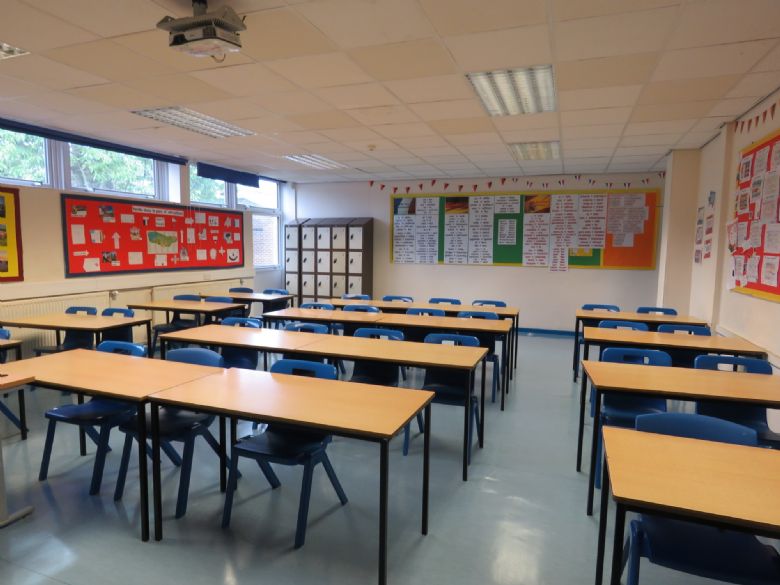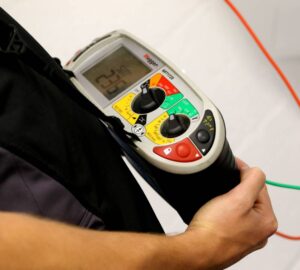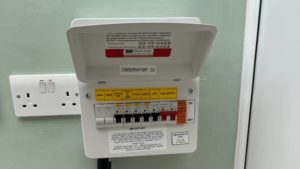Creating a Safe School Environment: The Importance of Electrical Safety
Ensuring a secure and healthy school environment fosters student development and staff wellbeing. Schools must prioritize creating an atmosphere that guarantees safety and security for all. This not only aids in students’ personal growth but also supports the faculty and staff in maintaining a peaceful and risk-free workspace.
Beyond safeguarding against external threats like burglaries or vandalism, it’s equally critical to address internal safety concerns, such as electrical safety. Regular maintenance of electrical systems reduce the risk of accidents, making the school a safer place for everyone.
Understanding Common Electrical Hazards in Schools
Schools depend heavily on electrical systems for day-to-day functions from lighting and heating to powering essential equipment like servers. However, the importance of these systems comes with a responsibility to ensure their safety and reliability.
Unaddressed, electrical hazards can pose significant risks including outdated systems, damaged cables, electric shock and malfunctioning equipment. These issues can lead to accidents, jeopardizing the safety of students and staff. Regular electrical testing are vital in identifying and mitigating these risks.

The Necessity of Electrical Testing in Educational Settings
Electrical testing and compliance plays a pivotal role in maintaining a safe school environment. This practice helps in detecting and fixing faulty systems, thus preventing accidents, and ensuring compliance with safety regulations. Regular inspections not only contribute to a safer environment but also bring economic benefits by preventing costly damages.
What Does Electrical Testing in Schools Involve?
Two main types of electrical testing are carried out in schools. These are:
- EICR Fixed Wire Testing (Electrical Installation Condition Report)
- PAT Testing (Portable Appliance Testing)
Performed by certified and experienced electricians, EICR Fixed Wire Testing in schools is an Electrical procedure that is carried out every 5 years and involves testing and inspection of the fixed wire electrics such as sockets, lights and fuse boards. PAT testing involves portable appliances such as microwaves, dishwashers and kettles which is usually carried out annually.

Get in touch with the Martin Cook Electrical Services team today and request your free, no-obligation quotation. Have any questions? We’re here to help with any of your queries.
Regulatory Requirements and Frequency of Electrical Testing
Schools must adhere to strict testing schedules to comply with legal standards, including the Health and Safety at Work Act and the Electricity at Work Regulations. Regular EICR Fixed Wire Testing and Inspection, typically every five years helps maintain safety and compliance. PAT Testing is typically annually.
The Role of Portable Appliance Testing (PAT) in Schools
Portable Appliance Testing (PAT) is an essential aspect of ensuring electrical safety in educational environments. While not a statutory requirement, PAT Testing is instrumental in verifying the safety of portable electrical devices, which are prevalent in schools, from laptops and projectors to kitchen appliances used in home economics classes.
Ensuring the Safety of Students and Staff (PAT)
The primary purpose of PAT Testing is to protect everyone within the school premises from potential electrical hazards posed by portable devices. This includes risks of electric shocks, burns, or even fire hazards that can arise from faulty equipment.
Compliance and Due Diligence (PAT)
While not legally mandatory, conducting PAT Testing demonstrates a school’s commitment to safety and adherence to best practice guidelines. It helps schools comply with broader health and safety regulations and shows due diligence in maintaining a secure environment.
Preventing Electrical Incidents (PAT)
Regular PAT Testing helps identify defects, from simple wear and tear to more serious electrical faults, before they result in accidents or injuries. This preventative approach is crucial in a school setting, where the safety and well-being of children are paramount.
Educational Continuity (PAT)
Faulty electrical appliances can cause unexpected disruptions to teaching and learning activities. By ensuring that all portable electrical equipment is functioning correctly, PAT Testing minimizes the risk of such disruptions, contributing to a smoother educational experience.
Asset Management (PAT)
PAT Testing also serves as an effective tool for inventory management, helping schools keep track of their electrical assets. It aids in identifying equipment that is obsolete, requires repair, or needs replacement, thereby aiding in efficient asset management and planning for future needs.
Implementing PAT Testing in Schools
The process involves a visual inspection for signs of damage or wear and more detailed checks using specialized PAT testing equipment. It is recommended that schools schedule PAT Testing annually, though the frequency can vary based on the type and usage of the appliance.
Schools should ensure that PAT Testing is carried out by competent individuals, typically qualified electricians or trained staff to guarantee that testing is thorough and adheres to safety standards. Following testing, all equipment should be clearly labelled with the date of the test and the next due date, while defective or dangerous equipment should be removed from use immediately.
The Role of EICR Fixed Wire Testing in Schools
Electrical Installation Condition Report (EICR) Fixed Wire Testing is a critical component of maintaining a safe educational environment. Though not mandated by law in all cases, EICR Fixed Wire Testing is fundamental in ensuring the integrity and safety of a school’s permanent electrical systems.
This comprehensive assessment involves a detailed inspection and testing of all fixed electrical parts of the building, including wiring, plug sockets, light fittings, and the electrical distribution board. Conducted by qualified electricians, this process identifies any defects, deteriorations, or deviations from the current safety standard that could pose a risk to the occupants.
The role of EICR Fixed Wire Testing in schools extends beyond mere compliance with regulations. It is an essential procedure that helps in:
Ensuring Safety (EICR)
The primary aim of EICR Fixed Wire Testing is to safeguard the well-being of students, staff, and visitors. By detecting and rectifying potential hazards like faulty wiring or overloaded circuits, schools can prevent dangerous incidents such as fires, electric shocks, or other electrical-related injuries.
Maintaining Compliance (EICR)
Regular EICR testing ensures that a school’s electrical systems are up to date with the latest safety standards and regulations. This not only helps in avoiding legal and insurance issues but also reinforces the institution’s commitment to safety and compliance.
Preventing Expensive Repairs (EICR)
By identifying issues early, EICR Fixed Wire Testing can save schools from unexpected breakdowns and costly emergency repairs. Regular maintenance and early detection of problems help in managing the school’s budget more effectively and planning for upgrades without emergency expenditures.
Educational Continuity (EICR)
Electrical problems can lead to unplanned outages, disrupting teaching and learning activities. Regular EICR testing minimizes the risk of such disruptions, ensuring that educational processes continue smoothly without any interruptions caused by electrical system failures.
Long-term Safety Planning (EICR)
The findings from EICR Fixed Wire Testing can help schools in planning future safety measures and budgeting for necessary repairs or upgrades. This proactive approach contributes to a safer learning environment, allowing students and staff to focus on education without concerns over electrical safety.
Free Electrical Testing Quotes
At Martin Cook Electrical, we specialise in comprehensive electrical services for schools, focusing on safety and regulation compliance. With over 25 years of experience, our team ensures that your school’s electrical systems are up to standard, offering services like Electrical Installation Condition Reports (EICR), PAT testing, Thermal Imaging and Emergency Call Out Assistance. We also carry out electrical remedial work which was highlighted from an EICR. This can be the EICR we have done or we can quote from an existing EICR.
Ensure the electrical safety of your school by contacting Martin Cook Electrical. Our electricians are ready to assist you with all your electrical testing needs, ensuring a safe learning environment.
Contact us today on 01525 582582, alternatively, contact us on the website or use the free quote tool. By using our free quote tool, you can upload your previous EICR and we can most likely provide a quote from that.

Get in touch with the Martin Cook Electrical Services team today and request your free, no-obligation quotation. Have any questions? We’re here to help with any of your queries.



